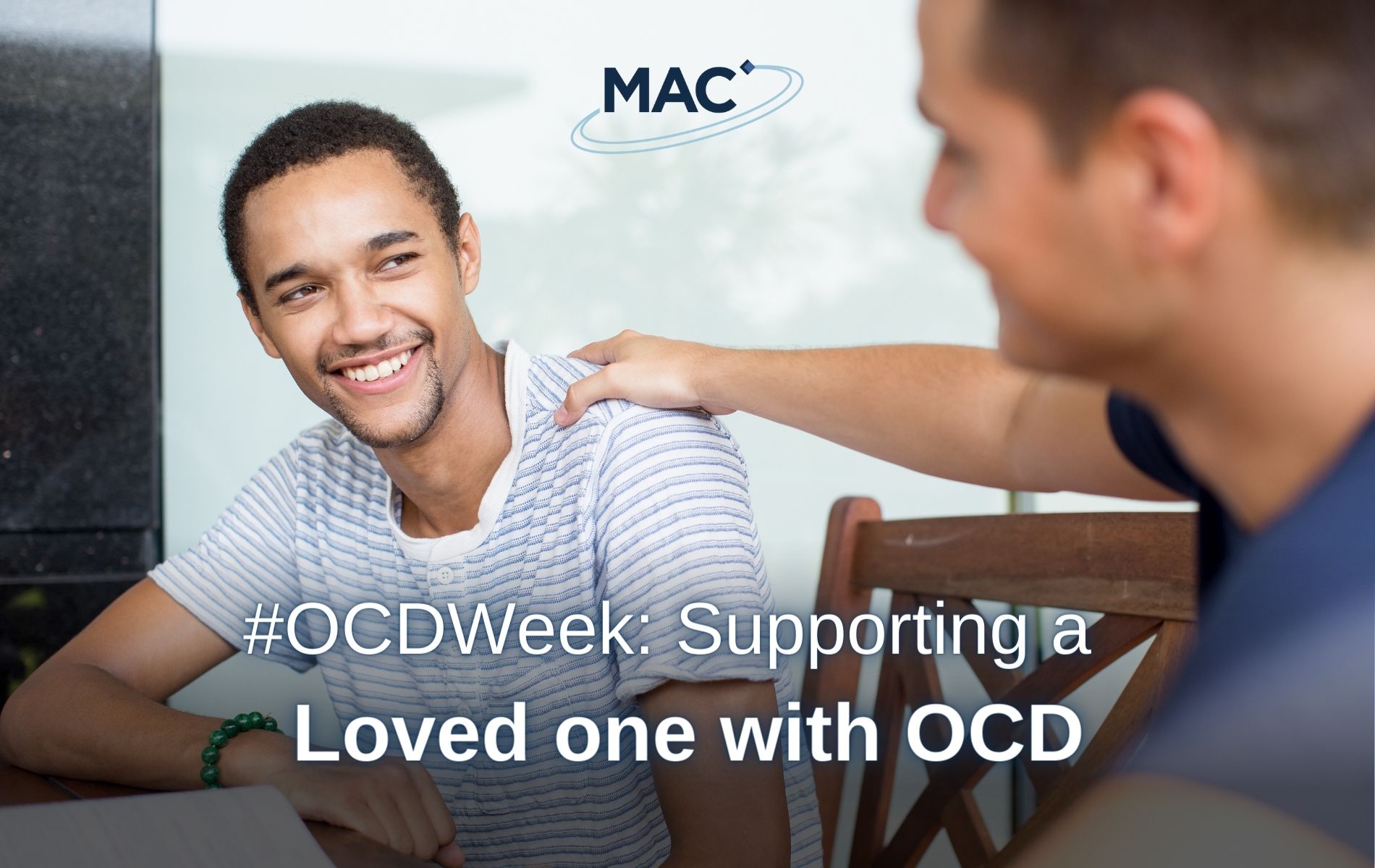Living with Obsessive Compulsive Disorder can be debilitating and exhausting, but the condition can have a knock-on effect, impacting the lives of the friends, families, and partners of those living with OCD.
For this year’s OCD Awareness Week, we’re raising awareness about OCD and how it can affect people’s lives, from the person living with the condition to their family, friends, and loved ones.
Obsessive Compulsive Disorder (OCD) affects an estimated three-quarters of a million people in the UK1. It’s a mental health condition that causes intrusive and often distressing thoughts, and repetitive behaviours or mental actions (known as compulsions), which are performed as a means of temporarily reducing the anxiety that intrusive thoughts can cause.
Friends, family, and partners are often key components of the support network for someone living with OCD, but it is not without its difficulties: it can be overwhelming, frustrating, and confusing trying to understand their experiences, and how you can best help. One of the first and most essential steps in supporting someone with OCD is to educate yourself and learn more about the condition: learn about the symptoms, causes, and treatment options. Understanding the nature of OCD will help you to empathise with your loved one’s struggles and dispel misconceptions that can contribute to stigma. For example, studies have shown that those living with OCD who have intrusive thoughts surrounding sexuality and violence in particular face greater social rejection2 due to the taboo nature of these unwanted thoughts.
OCD can be complicated and confusing so it is important to try to keep an open mind as hearing someone’s OCD experiences may initially worry or concern you, but remaining non-judgemental during conversations will enable your loved one to feel more emotionally safe. There are many resources at your disposal to learn more about the OCD, and many charities such as Mind and OCD Action offer free guides and advice for supporting someone with OCD. Building your understanding of OCD and encouraging individuals to share their thoughts and feelings in a non-judgmental way, when they are ready to do so, is a vital first step. Being aware of your reactions, keeping an open mind and really listening will allow them to feel emotionally safer to share their experiences.
Also, remember that living with OCD can be incredibly frustrating, your loved one may experience setbacks and moments of despair. Be patient and empathetic during these times, reassure and support without invalidating their struggles. Supporting them to seek professional help, accompanying them to medical appointments, understanding therapies they may receive, helping them with exercises at home (e.g., CBT), celebrating when they’ve coped with a situation well, or encouraging them to be compassionate with themselves, are all ways to strengthen belief in their own ability to manage their condition, as living with OCD can foster feelings of guilt and shame.
Although it is crucial to respect the boundaries and rituals of those living with OCD to ensure that they feel comfortable, one of the hardest parts of supporting someone with OCD is helping them to resist their compulsions (known as Accommodation or Family Accommodation3). Often, it is a natural response to try to help someone who is distressed and seeking reassurance from you, but assisting with compulsions may make the urge to do it again stronger and can perpetuate the OCD Cycle4 Instead, encourage them to work with a mental health professional trained in treating OCD, who can guide them through appropriate therapy techniques, such as Cognitive Behavioural Therapy (CBT) and Exposure and Response Prevention (ERP).
One study has shown that in a five-year period, the probability of a full remission from OCD was 16.9% and a partial remission 22.1%5. By resisting the urge to enable their compulsive behaviours, the probability of recovery from OCD may be raised as it helps to break the cycle of OCD.
Recovery from OCD is often a long and challenging journey. Be sure to acknowledge and celebrate your loved one’s progress, no matter how small it may seem. Your encouragement and support can be a powerful motivator on their journey.
If your loved one is currently living with OCD or OCD symptoms, they may be eligible for a clinical trial at MAC Clinical Research.
The trial is investigating a medication that is thought to target a different signalling pathway in the brain to current OCD treatments, which may help to control obsessive or compulsive behaviours. With their participation, they may be able to contribute to scientific research, which could lead to a new medicine to help people living with OCD.
The trial is taking place at MAC clinics in Lancashire, Greater Manchester, Merseyside, South Staffordshire, South Yorkshire, Teesside, and West Yorkshire.
Eligible participants must be:
- Aged between 18 and 65 years old.
- Have had OCD or OCD symptoms for at least 1 year that is affecting everyday life.
- Feel that their current OCD medication (antidepressant) is not fully working.
Eligible participants may receive up to £490 for their time and commitment to the study, along with reasonable travel costs. If the treatment works, they may be allowed to continue taking it (known as an open-label extension) for up to 48 weeks. For more information on how to get involved, visit our OCD Research page.
1 NHS Inform – Obsessive compulsive disorder (OCD)
2 Psychiatry Research – Public stigma of obsessive compulsive disorder and schizophrenic disorder: Is there really any difference?
3 Mind – How can I help someone with OCD?
4 Mind – The OCD Cycle
5 Journal of Clinical Psychiatry – Five-Year Course of Obsessive-Compulsive Disorder: Predictors of Remission and Relapse




